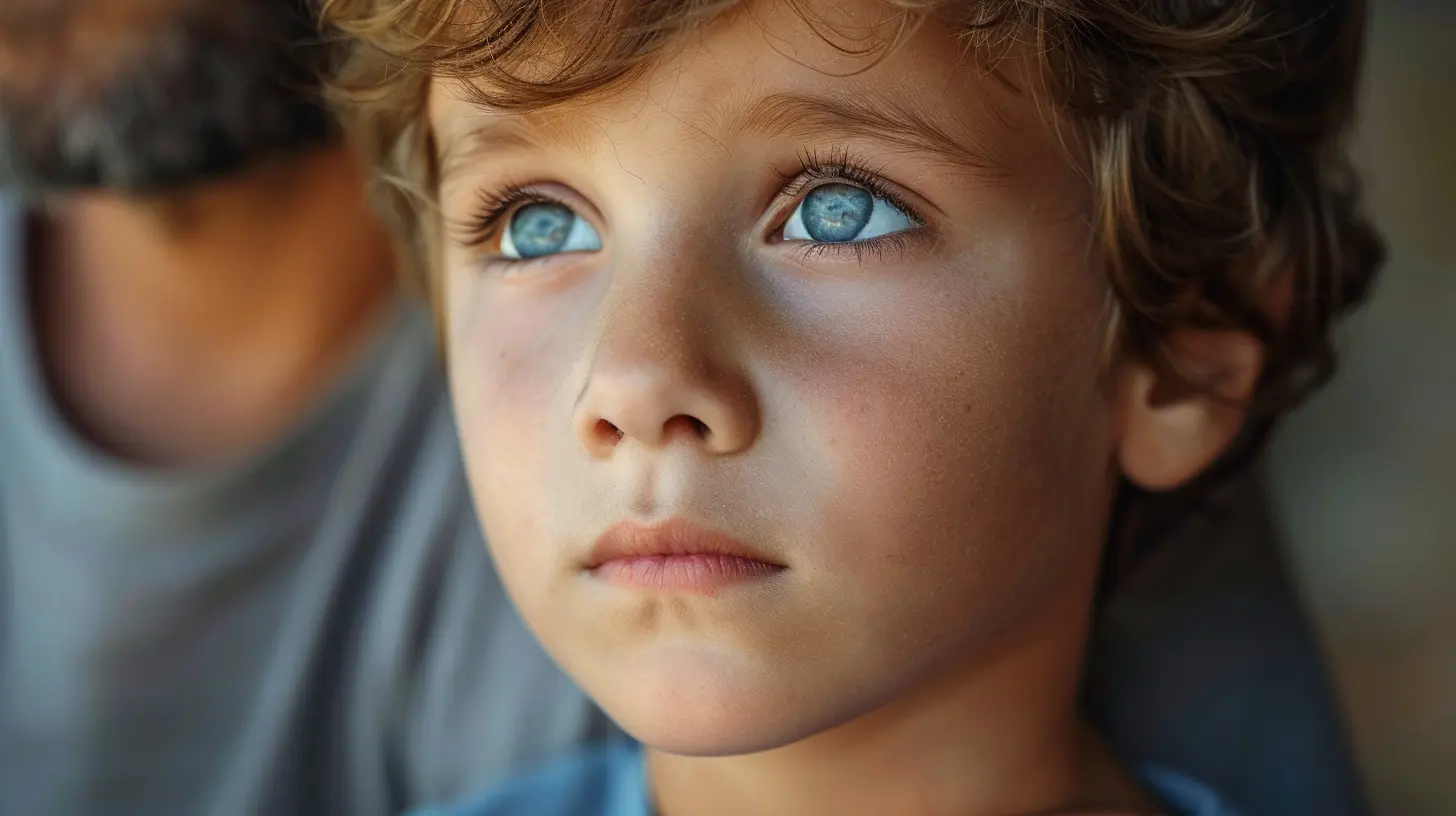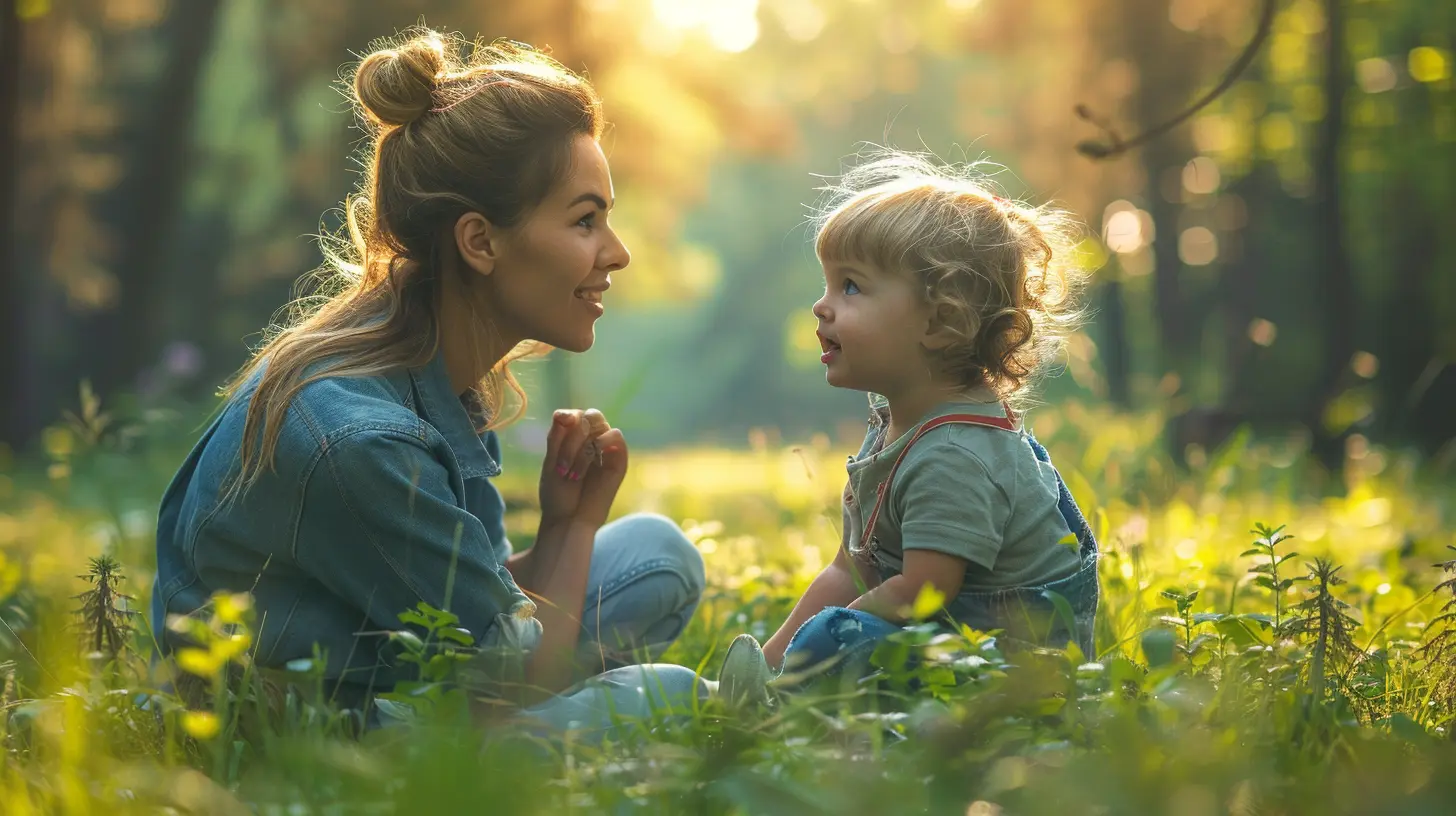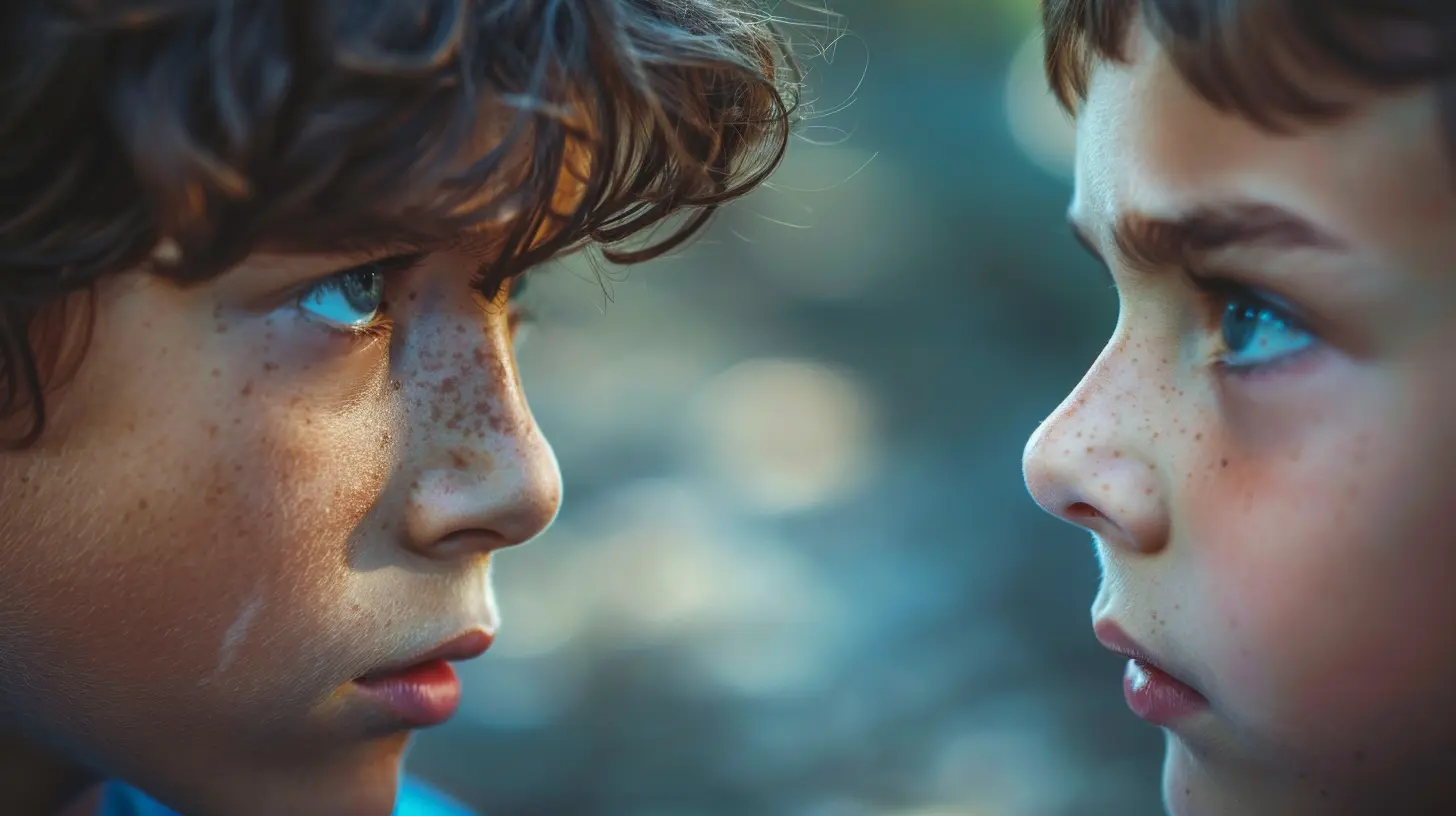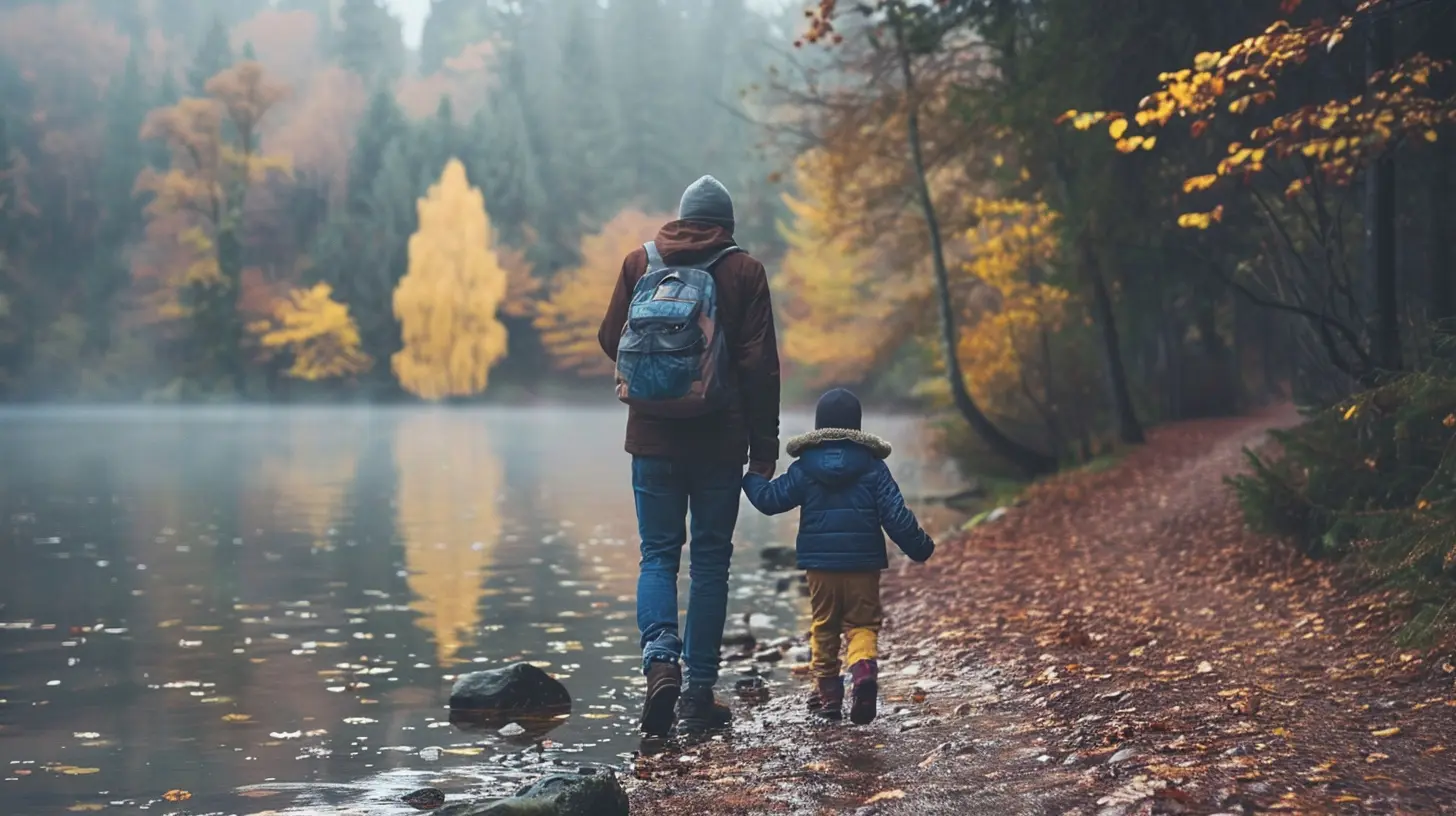Emotional Regulation in Parenting: Leading by Example
22 April 2025
Parenting is basically an Olympic sport. You need endurance, patience, and the ability to survive on minimal sleep while still functioning like a respectable human being. But one of the biggest challenges? Keeping your cool when your child is having an all-out meltdown because their banana broke in half.
Emotional regulation is essential in parenting, and the best way to teach kids how to manage their emotions is to lead by example. No pressure, right? Let’s dive into why emotional regulation is important, how it affects your kids, and some practical (and hilarious) ways to master it. 
Why Emotional Regulation in Parenting is a Game-Changer
Imagine you’re stuck in traffic, running late, and your toddler just dumped apple juice all over your phone. Your first instinct? Probably to scream into the abyss. But hold on—how you react in this moment teaches your child how to handle frustration.Kids learn emotional regulation by observing the adults in their lives. If you freak out every time something minor goes wrong, guess what? They’ll do the same. But if you handle stress with grace (or at least fake it well), they’re more likely to develop those same coping skills.
The Science Behind Emotional Regulation
Your brain has this neat little area called the prefrontal cortex, which is responsible for self-control and rational thinking. Unfortunately, kids’ prefrontal cortices are still under construction. They rely on their amygdala—the part that reacts impulsively. Ever wonder why toddlers go from giggling to full-on despair in 0.2 seconds? Blame their underdeveloped brain wiring.When parents stay calm in tough moments, it helps kids' brains develop stronger emotional control. Basically, your emotional regulation is like WiFi—your kids connect to it and download those skills. 
The “Monkey See, Monkey Do” Parenting Dilemma
Let’s be real: telling your child to stay calm while simultaneously losing your mind over spilled juice is like a gym instructor eating donuts during a workout session. Kids don’t just listen to what you say; they mimic what you do.If you explode every time your coffee gets cold (which, as a parent, it always will), they learn that frustration = dramatic chaos. Instead, if you take a deep breath, mutter something non-threatening, and move along, your child picks up healthier emotional habits.
The Mirror Neuron Magic
Ever notice how your mood affects your child’s? That’s because of mirror neurons—tiny brain cells that help us mimic others’ emotions and behaviors. When you stay calm, your child’s brain takes notes. But if you’re frazzled, they absorb that energy like a sponge.So next time you feel like yelling, remember: your kid is basically your tiny, chaotic reflection. 
How to Master Emotional Regulation (Without Losing Your Mind)
Now, I know what you’re thinking: “Sure, I’d love to be Zen all the time, but my toddler just painted the dog with peanut butter.” Don’t worry—we’re not aiming for perfection, just progress. Here are some realistic ways to regulate your emotions like a parenting pro.1. Breathe Like a Chill Yoga Instructor
When chaos erupts, pause and take a deep breath. Deep breathing signals your brain that you’re not in actual danger, even if stepping on a LEGO suggests otherwise. Try this:- Inhale for four seconds
- Hold for four seconds
- Exhale for four seconds
Repeat until you feel like a semi-functional adult again.
2. Use the “Pause Before You Pounce” Rule
Before reacting to a frustrating situation, give yourself a moment to pause. Ask:- “Is this really worth getting upset over?”
- “How do I want my child to handle problems like this in the future?”
Most times, the answer is: It’s not the end of the world.
3. Talk to Yourself Like You Would a Friend
Imagine your best friend just lost their cool because their toddler drew on the walls. You’d probably reassure them, not shame them. So why be so hard on yourself?Instead of saying, “I’m a terrible parent for getting frustrated,” try, “Parenting is hard. I’m human. I’m learning.”
4. Have a Go-To Mantra
A simple phrase can work wonders in keeping you grounded. Try:- “This is temporary.”
- “I can handle this.”
- “At least it’s not poop.”
Use humor if you need to—it’s a lifesaver.
5. Get Comfortable with Apologizing
Guess what? Parents mess up. But saying “I’m sorry I got frustrated. Let’s try again.” teaches kids that even grown-ups have emotions, and it’s okay to make mistakes.6. Take a Break (Yes, You Deserve One!)
If you’re about to lose it, step away for a moment. Go to the bathroom, pretend you’re looking for something in the pantry, or just take 30 seconds to regroup. There’s no shame in needing a mini-reset.
Teaching Kids Emotional Regulation (Without Sounding Like a Self-Help Book)
Once you’re working on your own emotional regulation, you can start teaching your kids. But let’s be honest—telling a hyperactive toddler to "calm down and breathe" rarely works. Here’s a better approach:1. Label Emotions Like You’re a Feelings Translator
Kids don’t always know what they’re feeling. Instead of shutting down their emotions, help them name them:- “I see you’re frustrated because your block tower fell.”
- “You seem sad because your favorite toy is missing.”
This helps them process feelings instead of bottling them up.
2. Model Healthy Coping Skills
Instead of just preaching about emotional control, show them in real life. If you’re frustrated, say:- “I’m feeling frustrated, so I’m going to take a deep breath.”
- “I need a minute to calm down before we talk about this.”
Kids absorb lessons they see in action.
3. Create a “Calm Down” Corner
Designate a cozy space with pillows, books, or fidget toys where your child can cool off. Make it a safe haven, not a timeout zone.4. Praise Efforts, Not Just Outcomes
Emotional regulation is a skill that takes time. Celebrate small wins:- “You took a deep breath instead of yelling—great job!”
- “I saw you try to use words instead of hitting. That’s awesome!”
Positive reinforcement works like magic.
The Reality of Emotional Regulation: It’s a Work in Progress
Let’s be real—no parent has perfect emotional regulation. Some days you’ll be a Zen master, and other days you’ll cry because your kid won’t put on their shoes. That’s normal.The goal isn’t perfection; it’s improvement. As you work on staying calm, your child picks up those habits over time. And eventually—hopefully—you’ll find that navigating parenthood feels just a little bit easier (and less like a reality TV drama).
So, the next time your child is having an epic meltdown, take a breath, remember they’re still learning, and—most importantly—grab yourself a snack. Because emotional regulation is hard work, and you deserve a reward too.
all images in this post were generated using AI tools
Category:
Emotional RegulationAuthor:

Matilda Whitley
Discussion
rate this article
4 comments
Josie Horne
This article beautifully highlights the crucial role of parents in modeling emotional regulation. By demonstrating healthy coping strategies, parents not only enhance their own well-being but also equip their children with essential skills for life. Great insights!
May 11, 2025 at 4:35 PM

Matilda Whitley
Thank you for your thoughtful comment! I'm glad you found the insights valuable in emphasizing the importance of parents in modeling emotional regulation.
Arlo Coffey
Modeling emotional regulation in parenting profoundly impacts children's future emotional intelligence and resilience.
April 27, 2025 at 3:51 AM

Matilda Whitley
Thank you for your insightful comment! Indeed, modeling emotional regulation is crucial in shaping children's emotional intelligence and resilience.
Victoria Benton
Thank you for this insightful article! It’s a gentle reminder of the importance of modeling emotional regulation for our children. I appreciate the practical tips shared; they inspire me to be more mindful in my parenting journey. Keep up the great work!
April 24, 2025 at 3:14 AM

Matilda Whitley
Thank you for your kind words! I'm glad you found the tips helpful. Wishing you all the best on your parenting journey!
Daniella McElhinney
Parenting: where emotional regulation is like a daily game of Twister! Stretch those patience muscles, balance on compassion, and remember—kids pick up on our moves. Let’s dance through the emotional rollercoaster together!
April 22, 2025 at 3:07 PM

Matilda Whitley
Absolutely! Parenting truly is a dynamic dance, and our emotional responses set the rhythm for our kids. Let's keep practicing those moves together!



